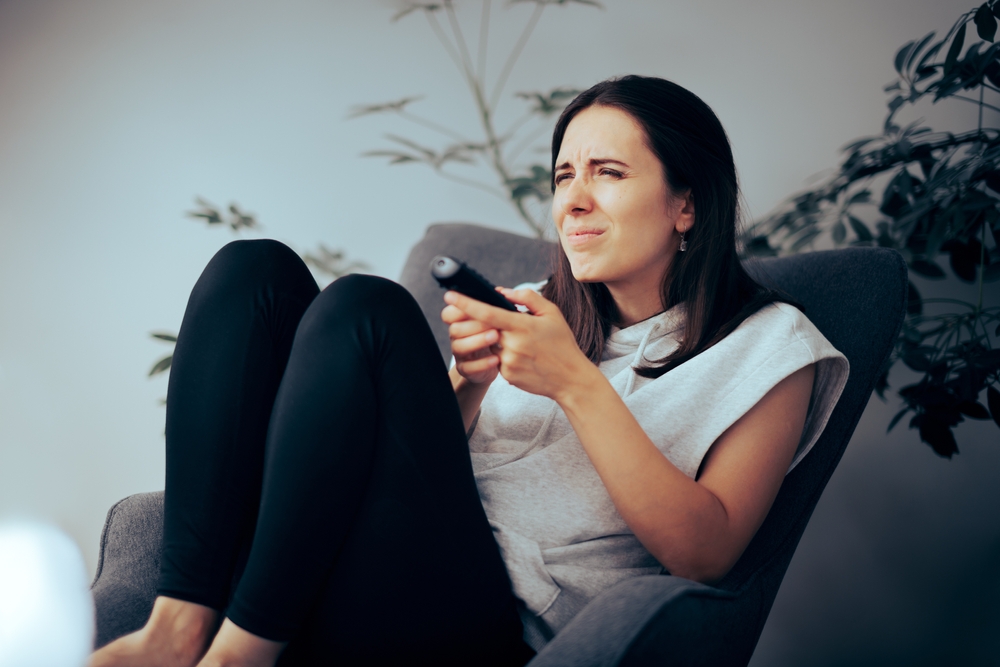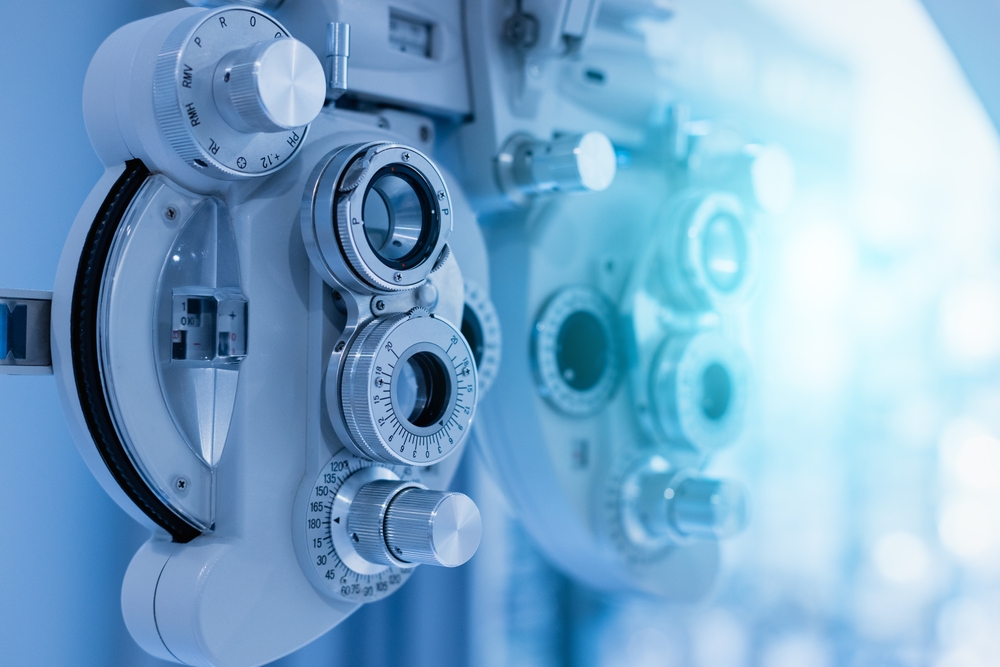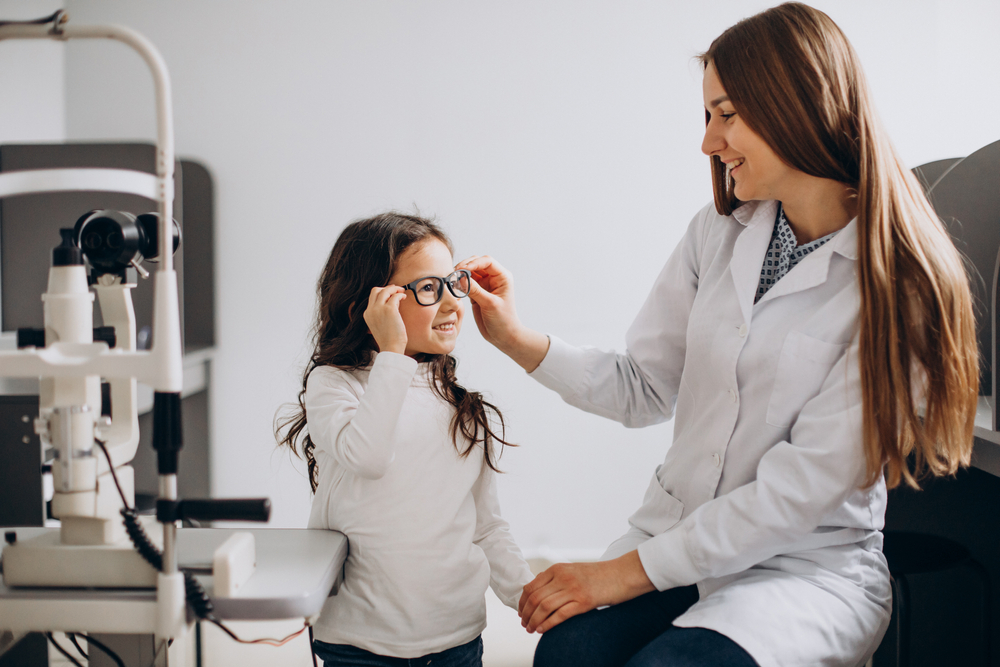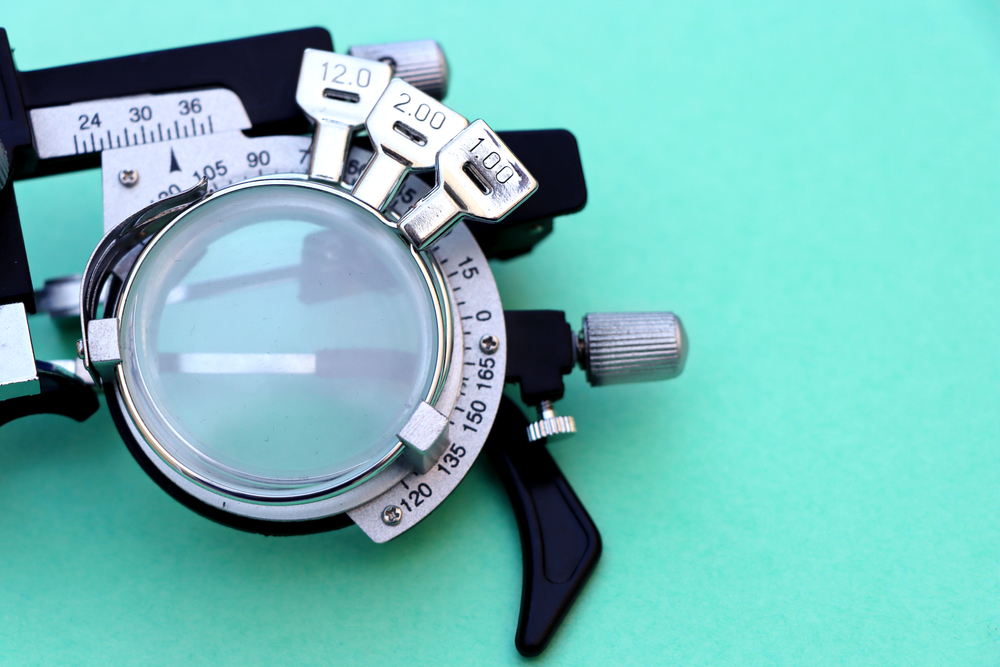Myopia, or nearsightedness, is one of the most common vision conditions around the world. Many people with myopia require visual aids daily in order to see the world clearly and perform their daily tasks.
Keep reading to learn more about managing myopia and maintaining clear, healthy vision long-term!

What is Myopia?
Myopia, also known as nearsightedness, is a common vision condition known as a refractive error, where objects in the distance appear blurry while close objects appear clear. With myopia, light focuses in front of the retina rather than directly on it, causing distant objects to look out of focus. =
Myopia is typically caused by the shape of your cornea or the length of your eye. If your cornea is too curved or your eye is too long, the light will fall in front of your retina, causing nearsightedness or myopia.
How Do Eye Doctors Treat Myopia?
There are several effective treatment options eye doctors use to correct myopia and slow its progression:
Glasses
Glasses are the most common and affordable way to correct refractive errors like nearsightedness or myopia. Glasses provide clear vision by bending light before it enters the eye to focus it properly on the retina.
For mild to moderate myopia, glasses can provide all the visual correction needed.
Contact Lenses
Soft contact lenses provide an alternative way to focus light correctly on the retina without wearing glasses. There are many brands and types of contact lenses specifically designed to correct myopia.
Contact lenses offer convenience, comfort, and unobstructed peripheral vision for active lifestyles.
Refractive Surgery
For those with severe myopia not correctable with glasses or contacts, procedures like LASIK can permanently reshape the cornea to reduce dependency on other vision corrections.
Regular eye exams are important to monitor for any changes in myopia prescription strength over time. Your eye doctor can recommend the best treatment approaches based on your prescription, lifestyle needs, and eye health.
What is Myopia Control?
Myopia control refers to treatments and management strategies aimed at slowing the progression of nearsightedness in children and teens. As myopia worsens over time, the risk of retinal problems, glaucoma, and vision impairment increases.
Myopia control tries to put the brakes on this worsening nearsightedness. Glasses, contact lenses, and eye drops are some methods eye doctors use to focus light differently to reduce visual stress on the eyes.
This helps maintain the eyes’ more compact, less elongated shape. While myopia control cannot completely stop the development of nearsightedness, it can significantly slow its advancement.
This preserves better natural vision and reduces risk of serious eye health issues later in life. Children who start myopia control before ages ten to twelve typically gain the most benefits in slowing nearsighted progression long-term.
Will I Need Glasses if I Have Myopia?
If you have myopia, you will most likely need some form of vision correction to see clearly, especially for tasks like driving and schoolwork. Glasses are the simplest and most affordable option for correcting myopia.
Glasses have lenses specially ground with an appropriate strength prescription to compensate for the eye’s refractive error. While glasses do not cure the underlying cause of myopia, they are an effective solution for compensating and providing crisp, focused vision at all distances.
Contact lenses and refractive surgery also permanently correct myopic vision but may not be ideal for all patients. The degree of your myopia will determine how strong your glasses prescription needs to be.
Those with mild myopia may only require glasses for certain activities, like driving at night. Moderate to high myopia usually necessitates wearing glasses or contacts full-time for clear sight.
As your myopia progresses, you will need periodic upgrades to your glasses prescription to maintain optimal vision correction. Kids with early-onset myopia, in particular, require frequent exams to check for increasing nearsightedness and prescription adjustments.
With the variety of stylish, lightweight frame options available today, wearing prescription glasses is easy and practical.
Can I Wear Contact Lenses if I Have Myopia?
Contact lenses are an excellent option for correcting myopic vision without wearing glasses. Soft contact lenses provide crisp focus by bending light before it enters your pupils, just like glasses.
There are many types of contact lenses specifically designed to correct nearsightedness. As long as your eye doctor determines them safe for your eyes, contact lenses provide an excellent alternative to eyeglasses for myopia.
Contacts allow unobstructed peripheral vision and are ideal for sports, work, and many other activities. However, wearing contacts requires diligent lens care and maintenance to keep your eyes healthy.
Hand hygiene and daily cleaning of the lenses is essential. Make sure to remove contacts before bed and replace them regularly as directed.
Also, visit your eye doctor routinely to monitor your prescription needs and eye health while wearing contact lenses.
Do you have myopia? Are you wanting to learn the best way to clear your vision? Schedule an appointment at Blaine Eye Clinic in Blaine, MN today!






